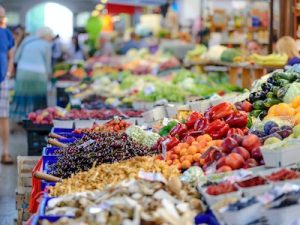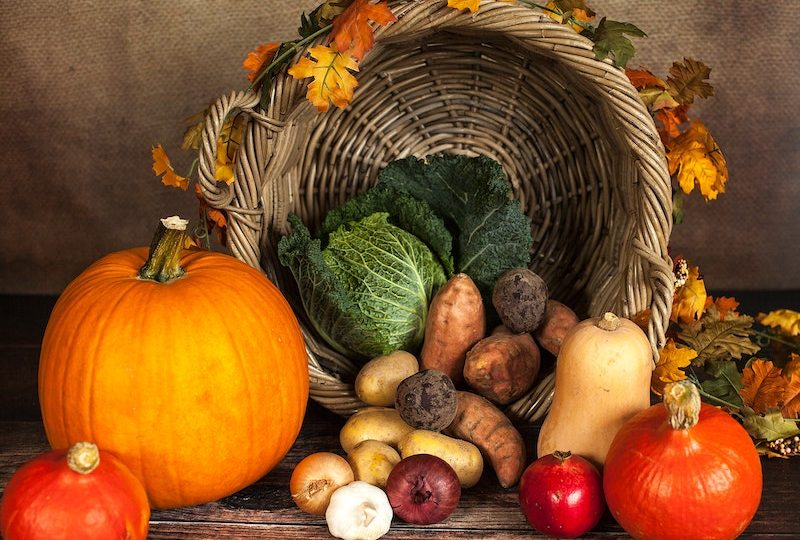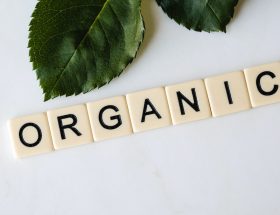In this article, we delve into the science behind why organic food is a healthier choice for you. From reduced exposure to pesticides and synthetic fertilizers to higher nutrient content and better taste, we explore the numerous benefits of choosing organic produce, meat, and dairy products for your diet. We also address common misconceptions about organic food and provide practical tips for incorporating more organic options into your meals.
 Organic food has become increasingly popular in recent years, with more and more people choosing to buy organic produce, meat, and dairy products. While some people opt for organic food for environmental reasons, others are drawn to it because they believe it is healthier than conventionally grown food. In this article, we will explore the science behind why organic food is a healthier choice for you.
Organic food has become increasingly popular in recent years, with more and more people choosing to buy organic produce, meat, and dairy products. While some people opt for organic food for environmental reasons, others are drawn to it because they believe it is healthier than conventionally grown food. In this article, we will explore the science behind why organic food is a healthier choice for you.
Reduced Exposure to Harmful Chemicals
One of the main reasons why people choose organic food is because it is grown without the use of synthetic pesticides and fertilizers. These chemicals can have harmful effects on human health, such as disrupting the endocrine system and increasing the risk of cancer. Children are particularly vulnerable to the effects of pesticides, as their bodies are still developing and they consume more food per unit of body weight than adults.
Organic farming practices minimize the use of synthetic chemicals and instead rely on natural methods to control pests and maintain soil fertility. For example, organic farmers may use crop rotation, cover crops, and compost to improve soil health and reduce the need for synthetic fertilizers. They may also use natural predators or traps to control pests.
Studies have shown that people who eat organic food have lower levels of pesticides in their bodies than people who eat conventionally grown food. For example, a study published in Environmental Health Perspectives found that children who ate organic produce had significantly lower levels of pesticide metabolites in their urine than children who ate conventionally grown produce.
Higher Nutrient Content
Another reason why people choose organic food is that it is believed to have higher nutrient content than conventionally grown food. While some studies have found that organic food has higher levels of certain nutrients, such as vitamin C, iron, and magnesium, the evidence is mixed and more research is needed.
However, it is clear that organic farming practices can lead to healthier soil, which in turn can lead to healthier plants and animals. Organic farmers focus on building soil health through practices such as crop rotation, cover cropping, and composting. Healthy soil can lead to better nutrient uptake by plants, which can result in higher nutrient content in the food we eat.
Additionally, organic livestock is raised without the use of antibiotics or growth hormones, which can be harmful to human health. Organic meat and dairy products are also typically higher in beneficial omega-3 fatty acids and lower in harmful saturated fats.
Better Taste
Many people who choose organic food cite the better taste and aroma as a reason for their choice. Organic food often has a more robust flavor than conventionally grown food, which can be attributed to a number of factors.
Firstly, organic farming practices tend to focus on building soil health, which can lead to better-tasting food. Secondly, organic food is often fresher than conventionally grown food because it is not treated with preservatives to extend its shelf life. Finally, because organic food is often grown locally, it may be picked at the peak of ripeness and sold soon after, which can enhance its flavor.
Addressing Common Misconceptions
Despite the many benefits of organic food, there are still some common misconceptions that prevent people from choosing it. One of the biggest misconceptions is that organic food is too expensive. While it is true that organic food can be more expensive than conventionally grown food, this is not always the case. In some cases, organic food may actually be cheaper than conventionally grown food, especially if it is purchased in season or in bulk.
Another misconception is that organic food does not have a longer shelf life than conventionally grown food. While it is true that organic food may not be treated with the same preservatives as conventionally grown food, there are still many ways to extend the shelf life of organic food. For example, storing produce in the refrigerator can help to keep it fresh for longer, and freezing organic meat and dairy products can help to extend their shelf life.
Another misconception is that organic food is not as widely available as conventionally grown food. While it is true that organic food may not be as widely available in some areas, it is becoming increasingly accessible as more and more people demand it. Many grocery stores now carry organic produce, meat, and dairy products, and there are also many farmers’ markets and community-supported agriculture programs that specialize in organic food.
Tips for Incorporating More Organic Food into Your Diet
If you are interested in incorporating more organic food into your diet, there are many ways to do so. Here are a few tips to get you started:
Shop at farmers’ markets: Farmers’ markets are a great place to find fresh, local, and organic produce, meat, and dairy products. Not only will you be supporting local farmers, but you will also be getting some of the freshest and healthiest food available.
Join a community-supported agriculture program: Community-supported agriculture programs, or CSAs, allow you to purchase a share of a local farm’s harvest. This can be a great way to get a variety of organic produce throughout the growing season.
Prioritize certain types of organic food: If you are concerned about the cost of organic food, prioritize certain types of food that are more likely to be contaminated with pesticides. The Environmental Working Group publishes an annual list of the “Dirty Dozen,” which are the fruits and vegetables that are most likely to be contaminated with pesticides. By prioritizing organic versions of these foods, you can reduce your exposure to harmful chemicals without breaking the bank.
Conclusion
Organic food is a healthier choice for you because it is grown without the use of synthetic pesticides and fertilizers, which can have harmful effects on human health. Organic farming practices can also lead to higher nutrient content in the food we eat and better-tasting food. While there are still some misconceptions about organic food, it is becoming increasingly accessible and affordable as more and more people demand it. By incorporating more organic food into your diet, you can improve your health and support a more sustainable food system.









